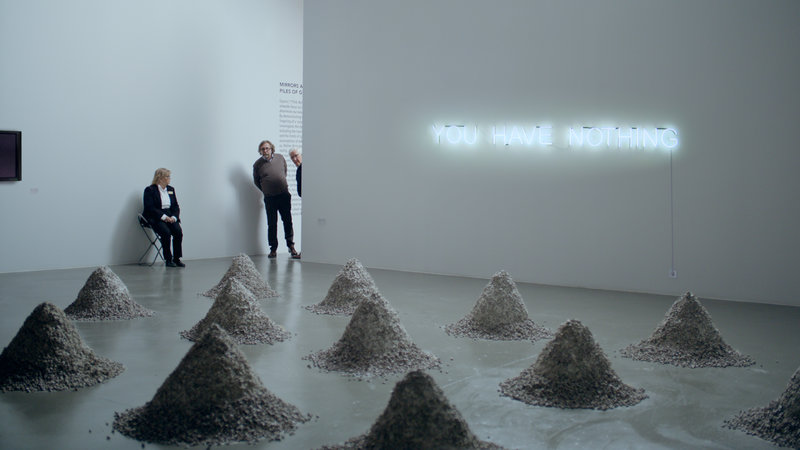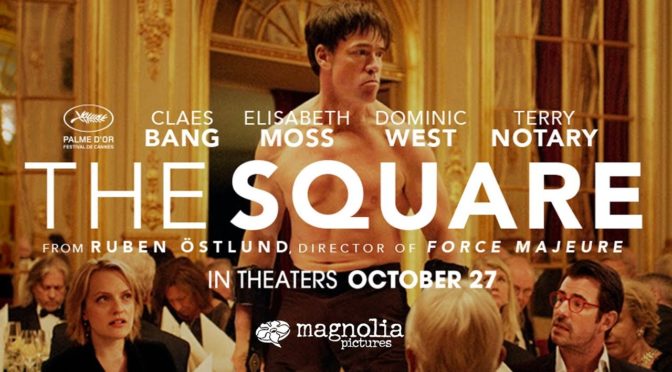The Cannes film festival is the epitome of high art filmmaking which makes this year’s Palme d’Or winner an unusual pick. Winners tend to be serious dramas, genre-film homages, or more experimental art films – not comedies. And definitely not comedies that make fun of art. Following up another Cannes-prize winning film, Ruben Östlund (Force Majeure) takes aim at the upper end of society with The Square. Chief museum curator Christian (Claes Bang) has his day ruined when his phone and wallet are stolen on the way to work. This incident is the first of many steps towards a gradual disruption of his life.
The world of high art is a polarizing setting. Artists and museum curators are constantly trying to challenge the status quo and push their work into new arenas while others remain absolutely baffled at how anyone could spend time or money on what seems like everyday objects. As Christian explains to an eager reporter named Anne (Elizabeth Moss; The Handmaiden’s Tale), “if we took your bag and placed it here, would that make it art?” Östlund understands the borderline lunacy and pompousness that comes with post-modern art and creates scenes where the veneer of sophistication is broken by simple questions. This culminates in an extended performance art exhibit where motion capture actor Terry Notary (War for the Planet of the Apes) enters a black-tie dinner at the museum and terrorizes the guests by acting like an ape. Ever-committed to his art, he refuses to break character assaulting and later being assaulted angry guests.

Östlund also stages scenes of incredible awkwardness. He places his characters in seemingly minor situations that become pits of inescapable embarrassment. After Anne and Christian have a one-night stand, their intimate moment makes a shift into escalating mistrust and Moss gives her character the slight edge needed to turn things uncomfortable, yet funny. Her exaggerated expressions hint at insanity lurking underneath her professional appearance. Another scene features a small child somehow intimidating Christian after feeling that he has been wronged. Without any sort of leverage, he still manages to become a major pain. The scenarios onscreen would be ridiculous when read on paper or explained to anyone and it’s the preposterousness of each dispute that makes the scenes as hilarious as they are awkward.
The central conflict is Christian being yanked out of his haute lifestyle. As a “semi-public figure” of high society, he carries an air of refinement. His sharp suits and styled hair are characteristic of his upper-class milieu, but, despite his position, his life unravels because of minor events. Östlund makes a point to emphasize numerous beggars that Christian walks by every day. With each new plot beat, the director brings Christian closer and closer to those beggars. His desires and his comic, but stupid actions are as “low class” as anyone else’s. It never overwhelms the comedy, but encasing the story in a backdrop of class differences gives the film an unexpected edge. The combination of hilariously cringe-worthy encounters, high art mockery, and a hint of social commentary make The Square an odd mix, but nevertheless a deftly executed satire.

4/5 stars.
